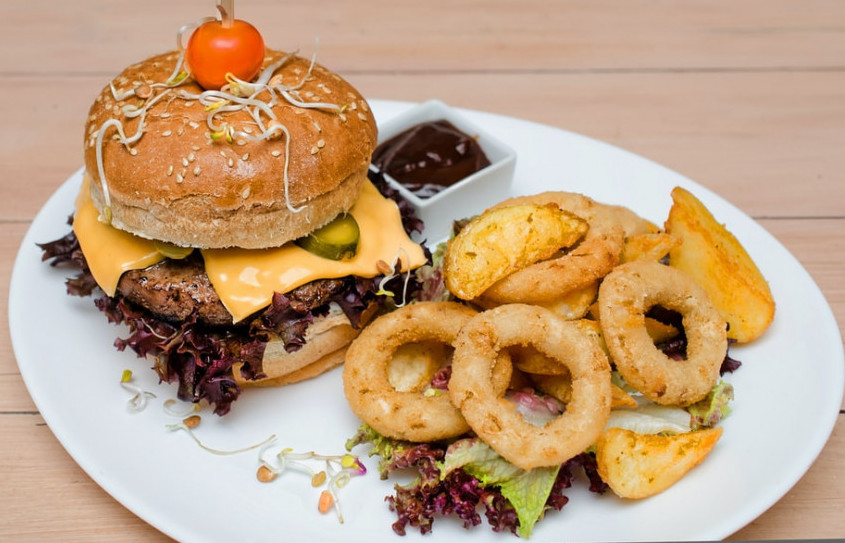 What is a Leaky Gut?
What is a Leaky Gut?
Leaky gut is a condition that affects the gut’s intestinal lining, also known as increased intestinal permeability. Gaps are created in the intestinal walls that can leak undigested food and bacteria that carry toxins into the bloodstream. These cause serious health problems. (1) Scientists have recently discovered more evidence that leaky gut syndrome has contributed to many medical conditions.
The intestinal system breaks down the food we eat and absorbs nutrients into the rest of our organs, but it also protects toxins from entering our bodies. When the junctions in the gut get loose or gaps are formed, that is how trouble begins, and we start getting sick.
Some common causes of leaky gut
Consuming sugary food and drinks: An unhealthy diet destroys the lining of the intestines, causing leakage and loosening of the tight junction of the intestinal wall (2)
Alcohol Intake: May increase the susceptibility of the intestinal permeability, causing more damage to the gut wall (3)
Stress: Chronic stress is known to be the contributor to many gastrointestinal disorders, including leaky gut, due to its link with lifestyle choices and the food we eat (4)
NSA IDs, e.g., Ibuprofen: These are common over-the-counter pain medication that destroys the gut wall which causes your gut to leak. This research(5) has shown about 50-70% of long-term users of NSA IDs have to increase leaky gut.
Antibiotics and steroids: Destroy the gut microbiome, irritate the lining of the gastric wall, and damage to the gut lining
What Are The Symptoms Of Leaky Gut Syndrome?
Leaky gut symptoms can differ from one person to another; everyone doesn’t get gut issues; some can find themselves with neurological problems. For example, Multiple Sclerosis or a person can present with many symptoms. Such as the ones below. Some might have mild symptoms others get a debilitating illness from it. So when you have a leaky gut, it not only causes problems in your intestinal system but can also affect your whole body.
- Bloating, gas, cramps
- Overgrowth of yeast or bacteria
- Food sensitivity
- Aches and pains
- fatigue,
- headaches
- Confusion
- Difficulty concentrating
- Joint pain
- Inflammation’
- Brain fog
- Skin problems, e.g., acne
- Anxiety
- Depression
Food To Avoid If You Have Leaky Gut
Grains
Especially grains with gluten, for example, Wheat Barley and Rye, gluten causes sensitivity to the gut and lining increasing inflammation resulting in more problems with individuals with the leaky gut syndrome.
Refined Sugar
Such as table and brown sugar or high fructose corn syrup all destroy the gut lining by causing an imbalance in the gut flora, increasing yeast growth, and other harmful bacteria in the gut, contributing to leaky gut.
Milk
Consuming processed, altered natural state of milk creates sensitivity to the gut. These allergies may vary from one person to another; therefore, it’s better to replace them with fermented organic yogurt or Kefir.
Refined Vegetable Oils
These oils such as sunflower, canola, soya bean are treated with chemicals. These are popular cooking oils that you find people use for cooking. But the damage they do is severe to the intestinal lining hence causing leaky gut.
If you have a chronic health issue that you’ve been struggling with for a long time, you might be at risk for a leaky gut. There are over 100+ autoimmune diseases that are linked to leaky gut. Here is a study. (6) done on leaky gut connection with autoimmune diseases.
There are no obvious or specific signs or symptoms for the leaky gut; some people with leaky gut might look healthy, that’s why it is tricky to diagnose it.
How To Heal Leaky Gut
Eliminating toxic foods
Gluten, dairy, refined sugar, processed food, and alcohol are the main toxic foods that irritate the gut lining, Thereforeit’s crucial to cut down or even avoid them altogether to heal leaky gut.
Plant-based diet
Eating a plant-based diet has proven to decrease the inflammation of the leaky gut. A diet with lots of fiber can reduce inflammation. Consuming gluten-free grains, vegetables, fruits, nuts, and seeds
Fermented foods 
Have good bacteria that may improve digestion, boost immunity, and are full of healing properties for leaky gut.
Examples of these foods are :
- Kimchi – Is a fermented spicy cabbage
- Saurkraut-Is mainly made from cabbage and salt
- Kefir: It is a fermented milk drink full of probiotics, it added to smoothies or drink by itself
- Kombucha: This is a fermented fizzy drink with sweet and sour flavor made with tea; it is rich in yeast and bacteria that beneficial to gut health
- Meso: Is a fermented paste made with barley, rice, or soya beans
Bone Broth
Better to get it from grass-fed meat, the collagen is extracted from the bones, which are protein, bone broth has healing properties for the gut.
Foods that are high in Omega 3
Wild Salmon has Omega 3 which has a calming effect on the intestinal lining and decreases the inflammation of the gut. It also helps the intestine to produce and secrete intestinal alkaline phosphate (IAP), that protects and acts as a barrier to gut.
High-quality supplements.
Can help in providing extra nutrients that can heal leaky gut.
Managing Stress
Stress can make matters worse and increase the symptoms that affect and give you more problems such as the leaky gut. (7) . Therefore; say no to stress by not adding an unnecessary commitment to your plate that is already full.
Doing exercises, meditation, yoga, and giving yourself some me-time like having a bubble bath and relaxing can reduce stress. By reducing stress hormones like cortisol and epinephrine through relaxation, tight junctions in the gut will heal.
Eating more healthy fats.
Ghee, coconut, olive, and avocados are good sources of healthy fat that are excellent for healing the gut.
Keeping hydrated
Hydration! hydration! is critical since our bodies are made up of about 60% water (8). To prevent getting constipated and make elimination easy, you need to drink at least 8 cups of water.
For a bodily function to occur and be carried out efficiently, water is needed for activities to happen, including temperature regulation, cellular function and waste removal.
Exercise 
Cardio exercise has been shown (9) to improve oxygen transport to the gut, promoting the gut microbiome’s activity and diversity, primarily the ones that produce the gut-healing properties known as fatty acid n-butyrate.
Doing cardio workouts for at least 150 minutes per week, especially physical activities that increase the heart rate, benefit gut microbiota, and increase beneficial gut bacteria and diversity.
If you have a chronic health issue that you’ve been struggling with for a long time, you might be at risk for a leaky gut. There are over 100+ autoimmune diseases that are linked to leaky gut. Here is a study. (6) done on leaky gut connection with autoimmune diseases.
There are no obvious or specific signs or symptoms for the leaky gut. Due to the complexity of the problem and similarity it has with other gut illness, it is tricky to diagnose it.
Many people see several healthcare providers for many years before they get any diagnosis. There is no quick fix to the problem; it’s a damage done to the gut for a long time, so healing it will take time.
References
- https://www.webmd.com/digestive-disorders/features/leaky-gut-syndrome#1
- https://pubmed.ncbi.nlm.nih.gov/19679262/
- https://pubmed.ncbi.nlm.nih.gov/16565490/
- https://pubmed.ncbi.nlm.nih.gov/22314561/
- https://www.wjgnet.com/1007-9327/full/v17/i42/4647.htm
- https://pubmed.ncbi.nlm.nih.gov/22109896/
- https://www.ncbi.nlm.nih.gov/pmc/articles/PMC5736941/


